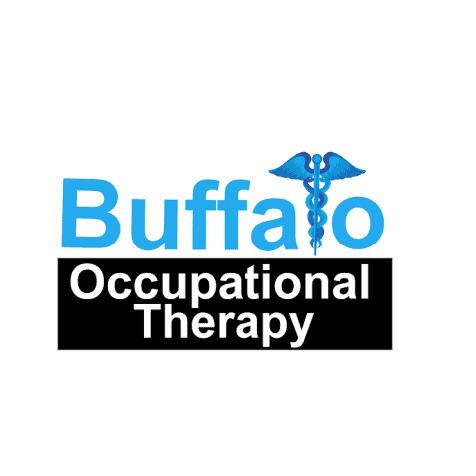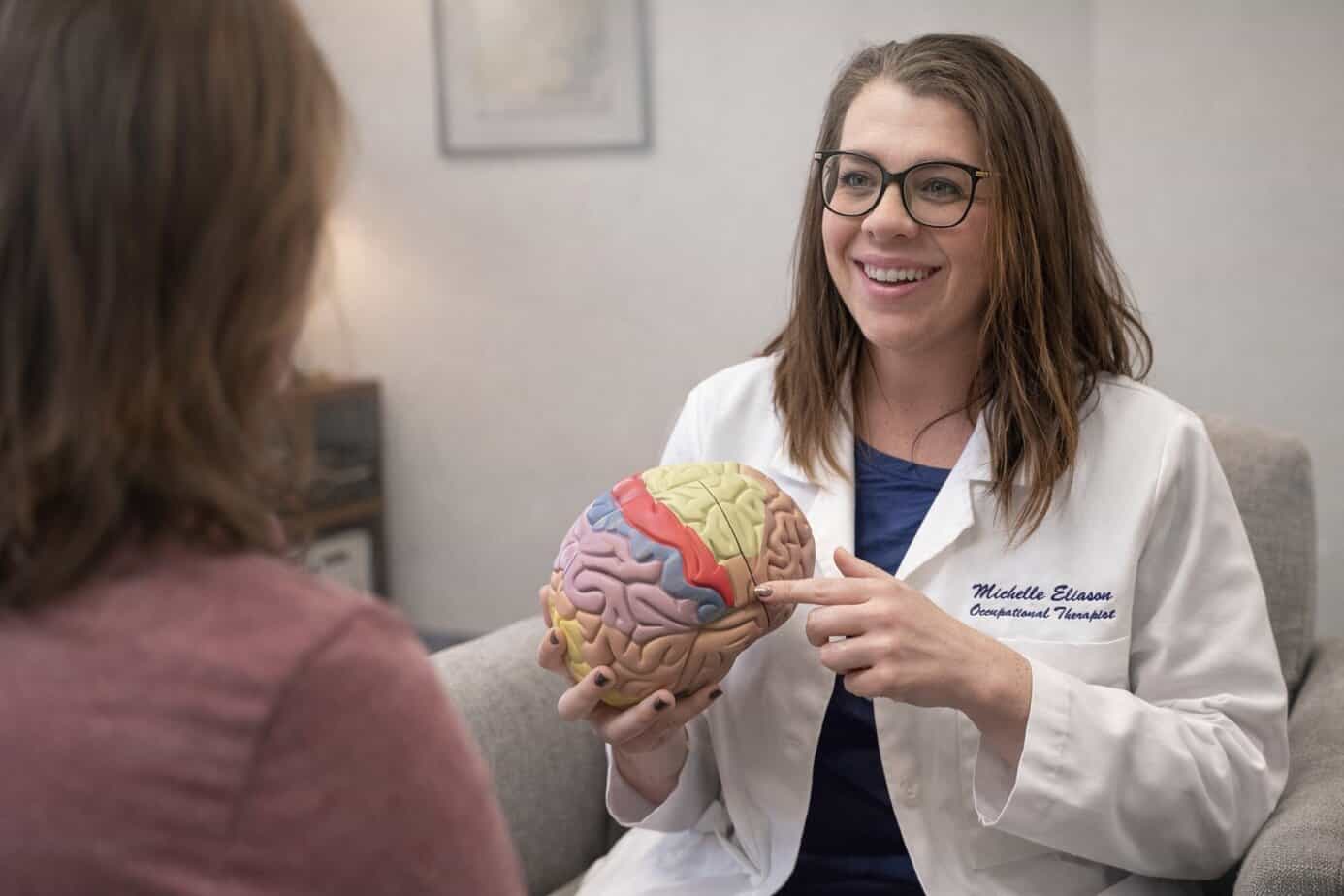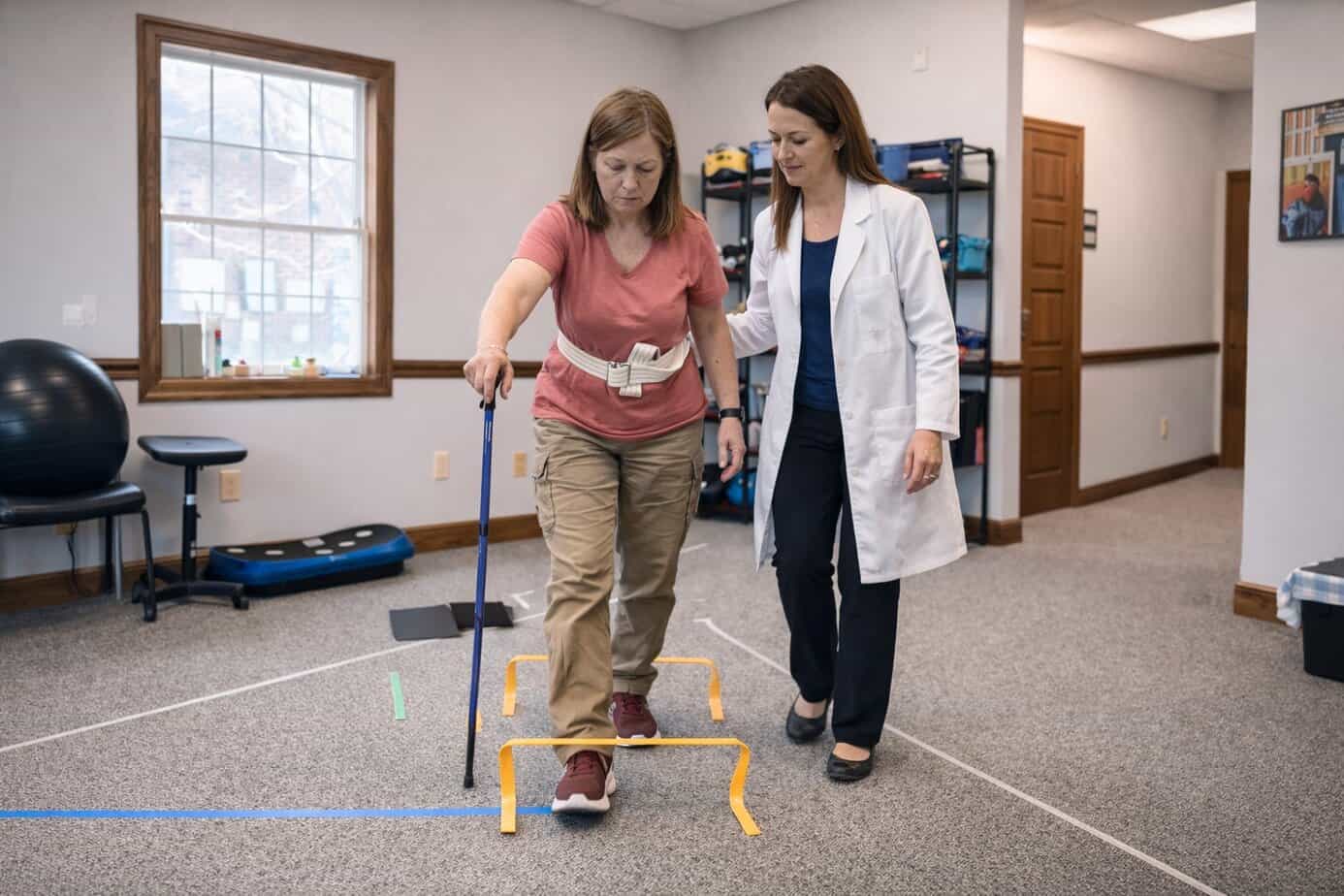Advanced Cognitive and Neurological Rehabilitation
Neurological Rehabilitation for Complex Conditions in Buffalo, NY
Neurocognitive care and research clinic.
Take Control of Your Brain and Memory Function Today!
Who We Help
Specialized Rehabilitation for Complex Neurological & Cognitive Conditions
We provide expert, research-driven rehabilitation for adults with:
-
Stroke & brain hemorrhage
-
Mild Cognitive Impairment (MCI)
-
Neurodegenerative conditions (Alzheimer’s, Parkinson’s, FTD, ALS)
-
Concussion & Traumatic Brain Injury
-
Cognitive decline impacting work, independence, or daily function
-
Executive dysfunction
-
Memory and attention disorders
-
Dual-tasking and functional cognition challenges
If traditional therapy hasn’t fully addressed your cognitive needs, our specialized approach may offer a different path forward.
We are a dedicated neurocognitive rehabilitation practice focused on complex presentations that require advanced, evidence-based care.
Why Choose Specialized Cognitive Rehabilitation?

True Neurocognitive Expertise
Rehabilitation delivered by specialists trained extensively in cognitive remediation, complex neurology, and functional cognition—not general therapy.

Evidence-Based, Research-Driven
As a research-active clinical practice, our methods integrate neuroscience, neuropsychology, and real-world cognitive function.

For Complex or Persistent Problems
We help adults who plateaued in traditional therapy, or whose needs require advanced assessment and treatment planning.
Is This the Right Place for You?
Most of our clients come to Buffalo OT because they need more than traditional therapy can offer.
You deserve care that is advanced, individualized, and grounded in neuroscience.
-
You’ve plateaued in outpatient OT/PT/speech
-
You’re experiencing changes in memory, attention, or executive function
-
You’re recovering from a neurological injury (stroke, TBI, concussion)
-
You’re living with a neurodegenerative or chronic neurological condition
-
Cognitive changes are interfering with work, school, or daily life
-
You feel dismissed, misunderstood, or “not bad enough” for help
-
You want clear answers, expert guidance, and a plan that actually makes sense
This is What Treatment Looks Like
What Neurocognitive Rehabilitation Looks Like
Neurocognitive rehabilitation blends brain science with real-life function. Here’s what treatment looks like in our clinic:
• Cognitive-motor integration
Training your brain and body at the same time to improve balance, coordination, and thinking under movement.
• Dual-task training
Practicing doing two things at once — like walking while thinking, talking, or reacting — to rebuild real-world cognitive endurance.
• Functional cognition rehabilitation
Improving how your brain manages daily tasks like planning, organizing, sequencing, and decision-making.
• Memory & attention retraining
Targeted exercises to strengthen sustained focus, recall, mental stamina, and processing efficiency.
• High-level executive function work
Rebuilding your ability to manage complex tasks, shift between activities, solve problems, and stay task-oriented.
• Real-life, occupation-centered tasks
Therapy built around your actual life — work tasks, home responsibilities, routines, and meaningful roles.
Insurance & Payment
Buffalo OT is an out-of-network, specialist-level neurocognitive practice.
This model allows us to provide:
-
extended one-on-one sessions
-
advanced neurocognitive assessment
-
high-frequency, high-intensity rehabilitation
-
deeply personalized care that is not limited by insurance restrictions
We provide superbills and assist you in navigating potential reimbursement for your care.
Your brain deserves care that is driven by science, not by insurance limits.
Ready to Begin?
Neurological Rehabilitation for Complex Conditions in Buffalo, NY
Concierge neurocognitive care. Superbills provided.


